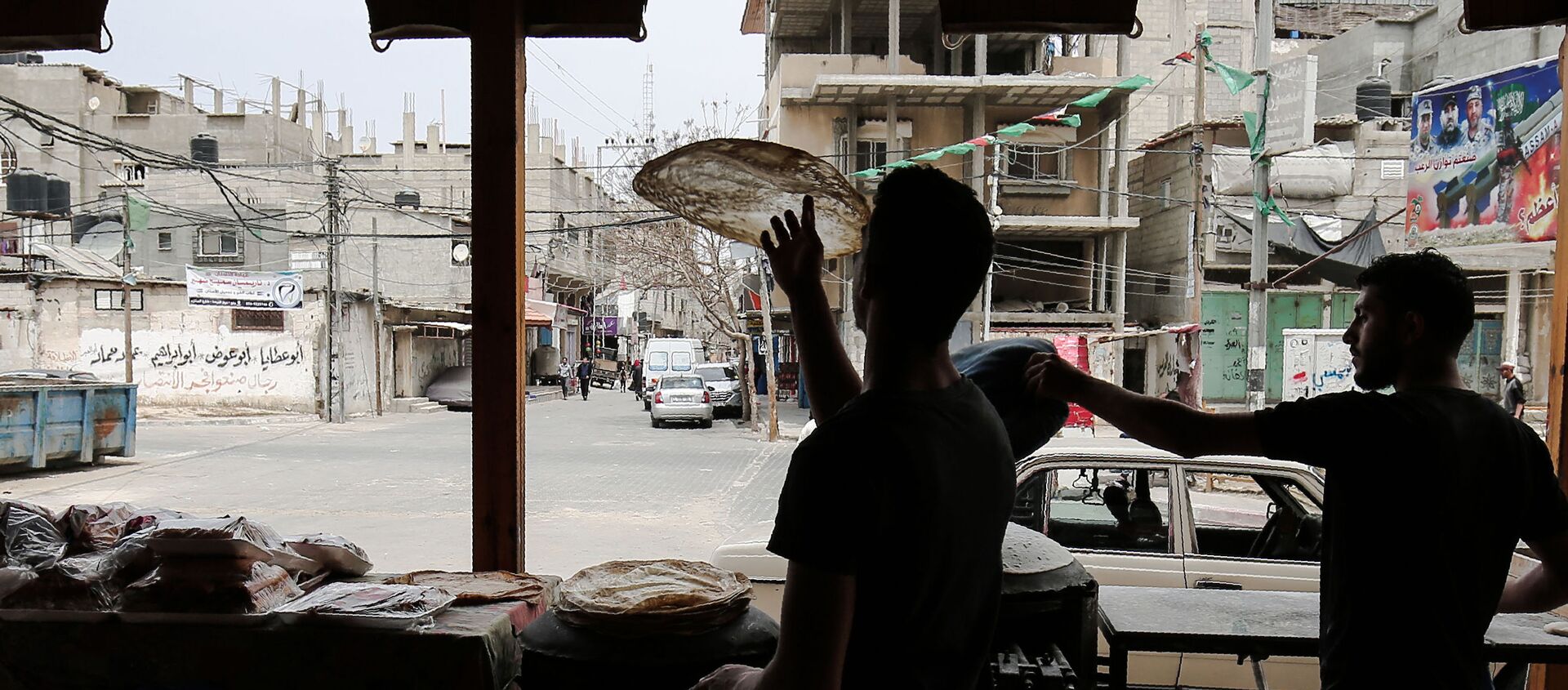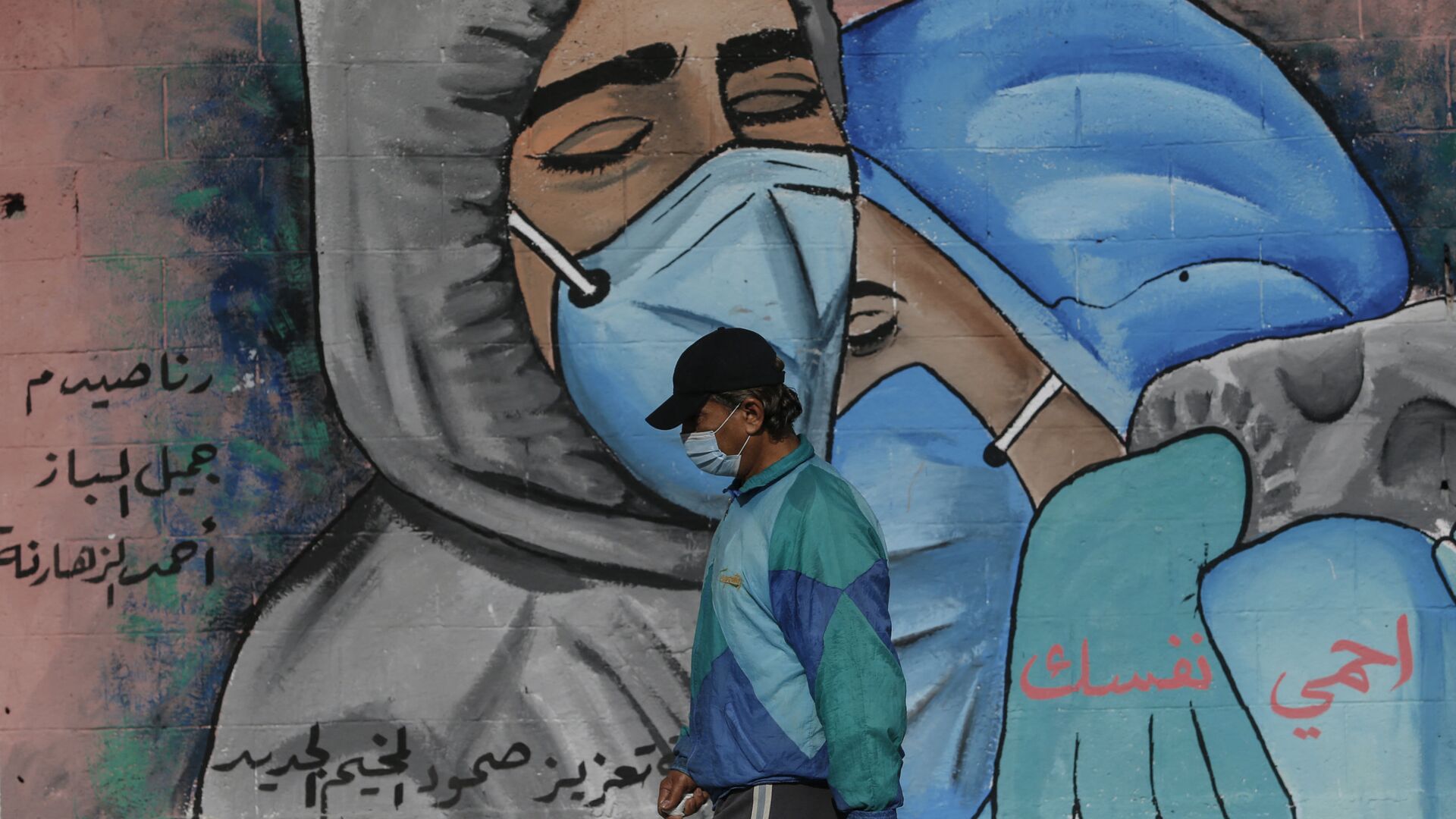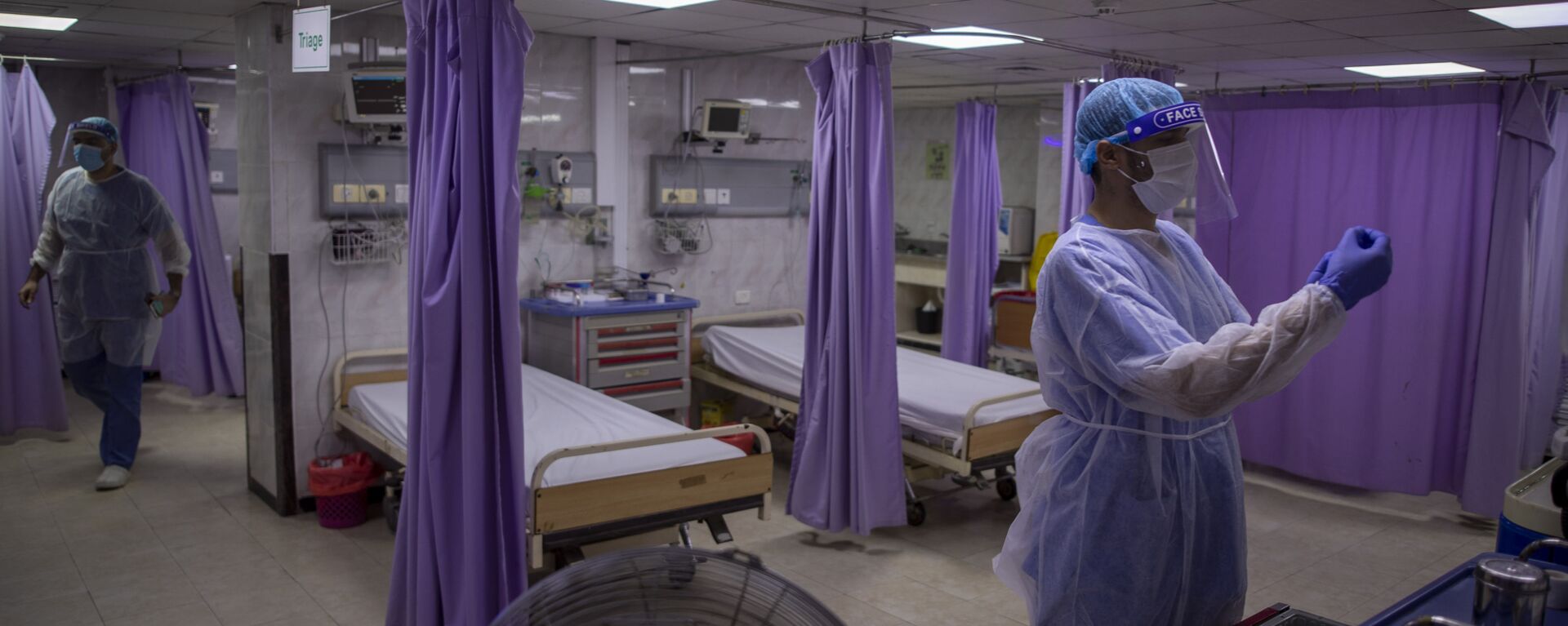Even though the first batches of COVID-19 vaccines arrived in the Gaza Strip some two weeks ago, the situation remains alarming in the Palestinian enclave where 72 new cases were registered on Monday, bringing the total number of patients to 1,901.
Although those numbers might seem low, for the Strip, considered one of the most densely populated areas in the world with a density of 5,000 people per square kilometres and with very few options for buildings, even such "insignificant" figures could spell trouble and contribute to the spread of the virus that has already killed nearly 600 Gazans.
Repercussions of Density
Hamada Asaad, a native of Gaza, is one of those who's experienced the results of the Strip's density firsthand.
Asaad, a father of eight, resides in a six-room house that is also shared by his siblings and his elderly parents.
Under these conditions, Asaad says it is extremely difficult to adhere to social distancing or quarantine oneself in the event of falling ill.
The problem is that he was forced to do so six months ago, when he contracted the virus at a local supermarket.
"The Health Ministry told me I needed to stay indoors for two weeks. They told me to be isolated. But I couldn't do it, simply because I don't have any room for that", he says.
Instead, Asaad decided to keep washing his hands and wear a face mask at all times, even when sleeping.
But that didn't help and soon after Asaad discovered that he had infected several members of his family, including three children, his wife, several siblings, and his elderly parents.
"My father couldn't cope with the disease and soon after contracting the virus he died", said the man, who blamed himself for the "disaster" he brought upon his home.
Pointing the Finger
However, his anger was not only directed towards himself and Asaad believes the disaster could have been averted if the government managed the coronavirus crisis efficiently.
"The Hamas government bears responsibility for the death of my father. All they did was to order me to stay at home. I was not given medicine, a place where I could quarantine myself, or even food that would boost my immunity during the disease".

More moderate cases, however, have been largely overlooked. The infection also continued to spread because very few of the restrictions imposed by the government were actually implemented on the ground.
"The government has to take care of their people. They need to provide us with medicine and cater to our needs", says Asaad, suggesting that right now Hamas is taking quite a different approach.
Yet, with the arrival of COVID-19 vaccines that general feeling of frustration might change but Asaad is still sceptical the amount given to Gaza will be enough to inoculate the more than 2 million people residing in the enclave.
"The vaccines might be effective but I don't think they will vaccinate all of us. I am sure they will first be given to the government and its supporters. Only then, if at all, to the rest of the population".
The Gaza Strip kick-started its vaccination drive at the end of February after receiving 22,000 jabs from Russia and the United Arab Emirates. The plan is that Hamas will vaccinate medical staff first, followed by the elderly and people with chronic diseases. Only then will the inoculation be available to the wider public if enough doses are secured.



